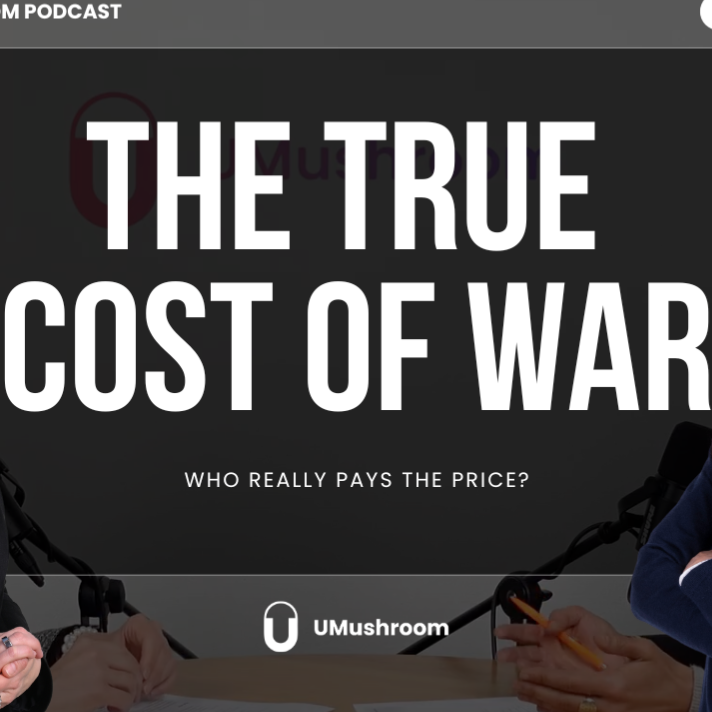What is Equity?
Equity is a very broad concept which can best be described as the value which is left in an asset after all liabilities have been deducted.

Definition of Equity
Together with debt, equity is arguably one of the most fundamental concepts underpinning our modern capitalist society which, for better or worse and despite its shortcomings, is the best system at our disposal today to ensure we use our scarce resources as efficiently as possible. At UMushroom we also use the term equity to label a certain type of investment which you may want to enter into. Holding equity (or stocks or shares) in a company, making you an equity holder (or stock holder or share holder), means that any value left in a company after all debts have been repaid belongs to you and the other shareholders. Equity on UMushroom is what is called publicly traded equity since it is tradeable on exchanges.
Discover the wide range of equites available on UMushroom to help you grow your investment portfolio.
Equity Details
Equity has always been around, but it wasn’t until the 17th century that it took on the form we recognize today. Around the year 1600 the increasingly risky ventures being undertaken by Europeans in order to trade with the Far East could no longer be financed by (small groups of) individuals: the risk of personal bankruptcy was too high. The solution was to invite the wider population to participate, through relatively small investments in the equity of several different ventures. But this required the existence of ‘something’ to invest in and ‘somewhere’ where such investments could be processed. The something was the Vereenigde Oostindische Compagnie (VOC or the Dutch East India Company, established 1602) and the somewhere was the Amsterdam Stock Exchange. Even though individual voyages to Asia were at high risk of failure, the overall profitability of the company was so considerable that within a couple of decades it grew into, some say, the largest corporation ever to have existed. Well we can take that with a pinch of salt as also with the claim that Amsterdam hosted the first stock exchange: the Italians will gladly point out their efforts to get there first in Venice, Florence and Genoa.
Nevertheless, the capital raising model had been firmly established: stock exhanges are now everywhere and on UMushroom there is a selection of the most common equities trading on the main exchanges around the world. By buying a share in a company, a slice of the equity, you participate in all of the upside in the company’s success. On the other hand, but also luckily, companies these days are set up with limited liability (Ltd., Limited, BV, AG, etc) meaning that the most an equity holder can lose is all of the original investment without additional liability for any larger loss. Recent investors in Wirecard, or further in the past, Enron and Worldcom, saw their investments wiped out, but they did not have to also repay the funds lost or embellished by the management.
But remember, what you see on UMushroom are only the publicly traded shares. In terms of equity, it is also possible to invest in, amongst others, private equity (which is the same thing, just not easily tradeable) or in real estate: the difference between the value of the house and the mortgage is your equity holding.

How Does Equity Work?
What equity is should be somewhat clear now (= assets – liabilities) and for the purpose of this text let’s focus on the equity of publicly traded companies. As with all concepts in finance, things remain complicated though. Asking an accountant about the role of equity in the company accounts would lead to the relatively simple answer that the equity value is the sum of all assets in the company (cash, machines, unsold goods, etc) minus the liabilities (bank loans, bills payable, etc). It is a backward looking measure for equity, with the resultant value being the book value. It is not that interesting.
As investors we have to look forward. And having taken a look into the future we incorporate everything we see into the share price today: how much cash can we expect to receive back from the company (dividends!), until the end of time (or the end of the company) discounted back to today. What this means exactly is best explained another time but that is the subconscious process preceding an equity transaction (and ideally not the futile hope that there is always a ‘greater fool’ out there who will pay even more than you for an otherwise worthless piece of equity). So the value of a company is its ability to generate cash, not only in terms of more is better, but at an ever increasing rate. For enthusiastic discounters out there, the future growth rate, even when seemingly small, has an absolutely explosive impact on the share price, convincingly illustrated in recent years by Nvidia.
In UMushroom you should always keep an eye on the earnings estimates for the company over the coming years, you should find them on any equity page. Not only how much but… is that number going up. The conundrum is though that the whole world already knows about that amazing growth rate and the shares might already be too expensive. Even better is to be able to identify companies which you think the world just doesn’t know about yet and get in early. So, you will often hear in finance: Do your own research! UMushroom can certainly help there by teaching you about the concepts, why not enroll in one of the educational plans?
Why Is Equity Important?
Equity and its sibling, debt, make the financial world go round. Nothing more, nothing less. So quick & easy answer, yes equity is important. Why is access to equity investment opportunities important for the individual investor though? Well for that go back a couple of paragraphs and read about the choice given to those early investors in the VOC. Cash in the bank vs the highly risky and highly profitable opportunity presented by the VOC? Over the long term, to grow wealth, the choice always lands on the second opportunity. Specifically:
- Wealth Creation: Equity is a significant source of future wealth through capital appreciation and dividends.
- Risk and Return: Equity investments offer higher potential returns compared to other forms of investment more closely linked to cash, but they also come with higher risk. Risk vs Return is the financial equivalent of the human relationship (complex yet beautiful) which is a topic best left for another day.
- Ownership Stake: Equity holders have voting rights and a say in company decisions, so this kind of investment may allow the equity holder to make a difference to how a company conducts itself.
Common Misconceptions About Equity
- "Equity is Only for the Wealthy": Equity investments can be made with varying amounts, making them accessible to a broad audience. For smaller investments, care has to be taken though that the bank fees and commissions don’t erode the available returns too much. See also the discussion about Exchange Trade Funds or ETFs for more clarity on this.
- "Equity Always Involves High Risk": For the uninformed yes, for the informed, no. Getting carried away on internet forums and investing into ‘the next great thing’ can be very risky and risk total loss of the amount invested. Investing into a wide selection of different ideas (=diversification) can reduce risk to such an extent that it is almost always the best way to invest money over the long term, ie over 5 years or more. Learn more about this in one of the UMushroom educational programs.
Conclusion
Understanding equity can empower individuals to make informed investment decisions and personally participate in the growth and success of businesses. As described in this note, the key to success though is having the knowledge to make sensible decisions. Investing in equities can be risky and, in fact, scary but with the right mind set and training, it can also be a highly rewarding and satisfying experience.
FAQs About Equity
Q: What is the difference between equity and debt?
A: Equity represents ownership in a company, while debt represents borrowed money that must be repaid.
Q: How can I invest in equity?
A: Equity can be invested in through purchasing stocks or shares in publicly traded companies, in private equity investments and via instruments such as ETFs and Funds
Q: What are the risks associated with equity investing?
A: Equity investments carry risks such as market volatility and company performance risks, which can affect the value of investments. However, risks associated with individual companies can be almost entirely mitigated through diversification. In fact, an important concept in finance is that “you do not get rewarded for bearing risks associated with individual companies as that risk can be diversified away for free”.
Related Terms
- Stock: A share representing ownership in a company’s equity.
- Debt: Financial obligations that represent borrowed money, in contrast to equity.
- Market Capitalization: The total value of a company’s outstanding shares of stock, reflecting its equity value.




